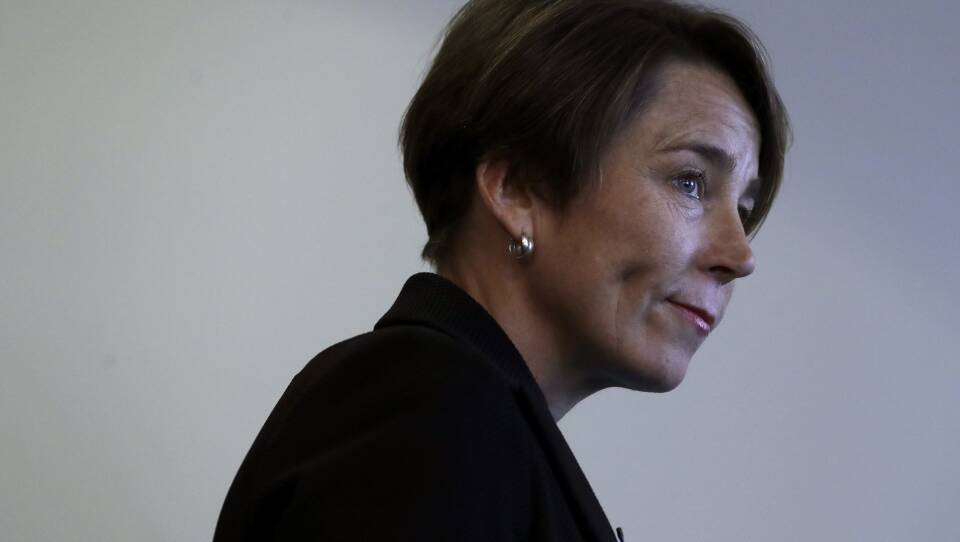Facing the threat of Gov. Charlie Baker's veto, the Massachusetts Senate approved modifications to a landmark police reform bill Monday. The House will take it up Tuesday.
The sticking point had been proposed restrictions on police use of facial recognition technology. The modified bill would tighten the existing guidelines for use of the technology. Attorney General Maura Healey, who had opposed limits to law enforcement officers' use of facial recognition, told Boston Public Radio on Tuesday that "the important thing is we're going to get a police reform bill signed and on the books, and that is a really good thing."
The legislature had sent a bill to Baker's desk that would have required police to get a warrant to access the Registry of Motor Vehicles' facial recognition software, unless there was an imminent threat. That was prompted by concerns over racial bias in many facial recognition programs.
The modified bill no longer requires a warrant, though it does require a written request.
Healey, the top law enforcement officer in the state, acknowledged the limitations of facial recognition software, but she said there are ways to ensure "appropriate processes" are built into its continued use among police officers.
"We absolutely need to have facial recognition," she said, noting it is not the only tool officers use to identify people.
"It's part of any number of investigatory measures. While the technology has been studied and there have been studies that show it does not have the same precision for Black, brown and Asian faces, that has to be accounted for," she said. "We need to improve the technology. But I don't think you abandon the technology."
In her support of the compromise bill, Healey cited the proposals that made it past Baker's pen, like a commission to certify police officers, set use of force regulations, ban chokeholds and impose a duty on officers to intervene if they see fellow officers do wrong.
The Senate has also approved changes sought by Baker regarding no-knock warrants. Initially, the legislature prohibited no-knock warrants where a child or person over 65 years old is present.
Healey maintained these are rarely used and necessary for certain law enforcement operations.
"There are situations that necessitate that — if you have a hostage situation, kidnapping, we've got cases involving child sexual exploitation," she said. "We have these cases, and we need to be able to get in and do the work."
Healey also told Boston Public Radio that she will ask the federal Department of Homeland Security to terminate its partnership with the Bristol County Sheriff's office after a violent altercation between deputies and immigration detainees in May. Healey's office investigated the department's response and recently determined it violated the detainees' civil rights.
"I will take whatever action necessary to see that happens," she said.





